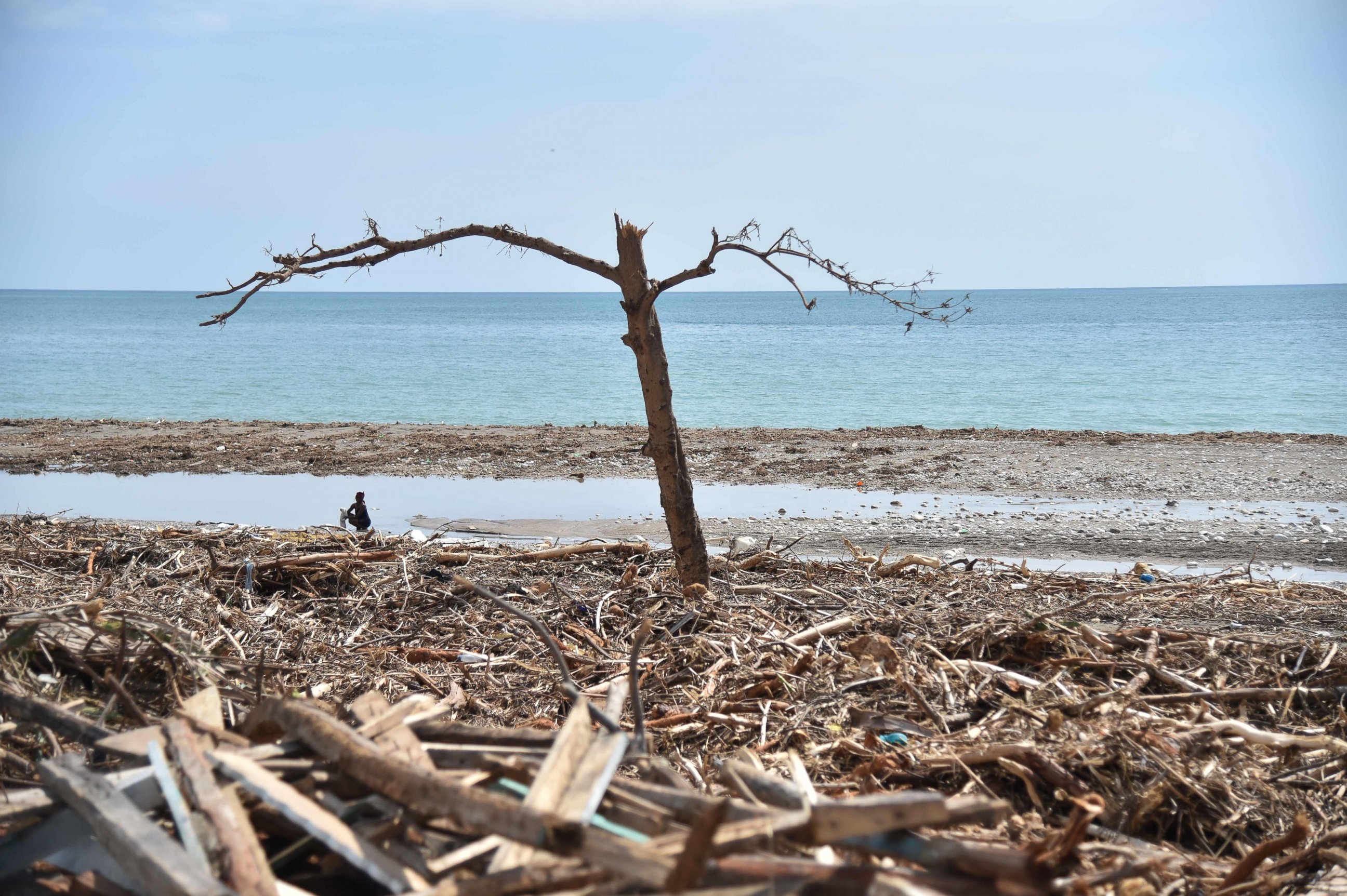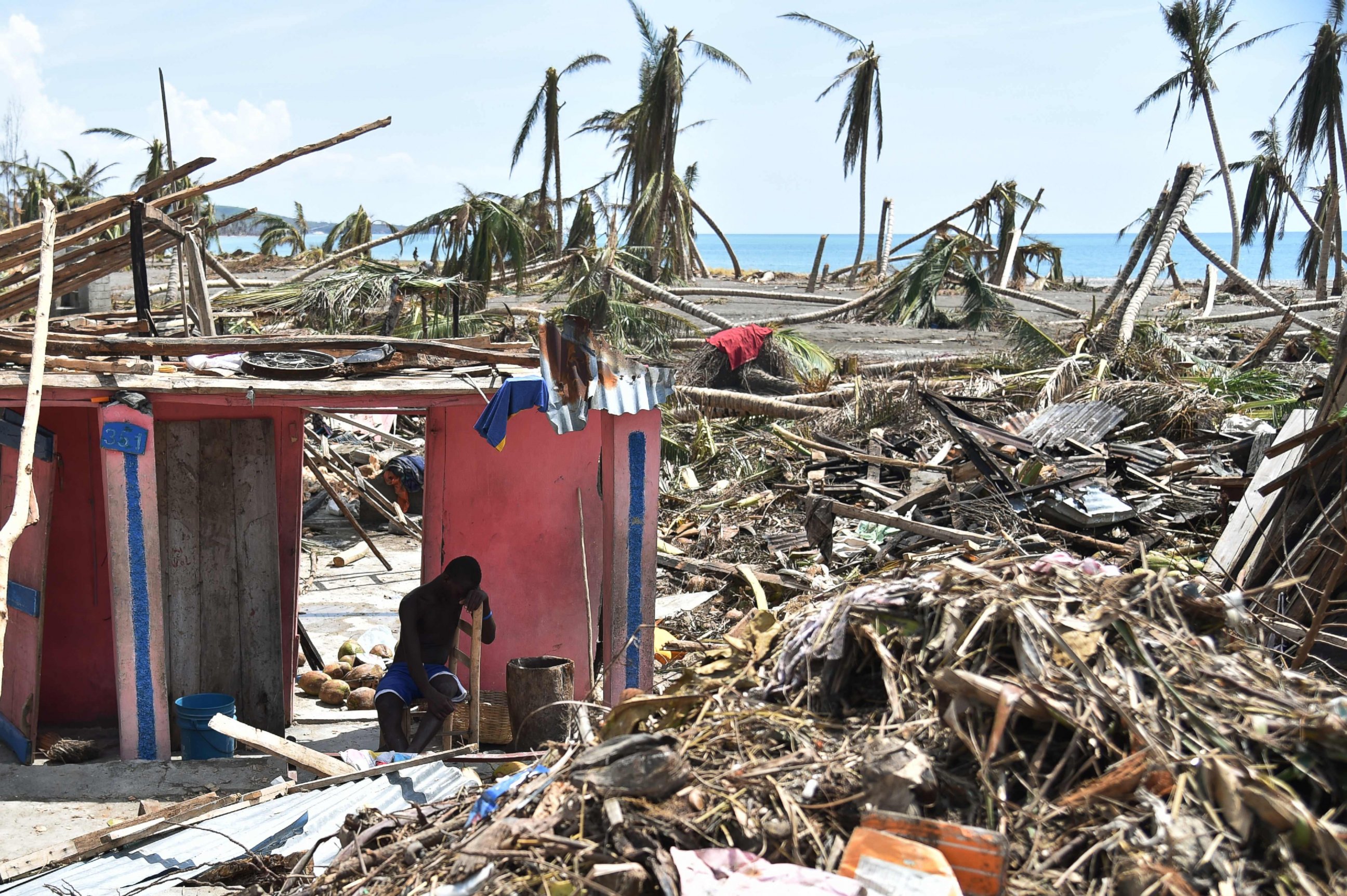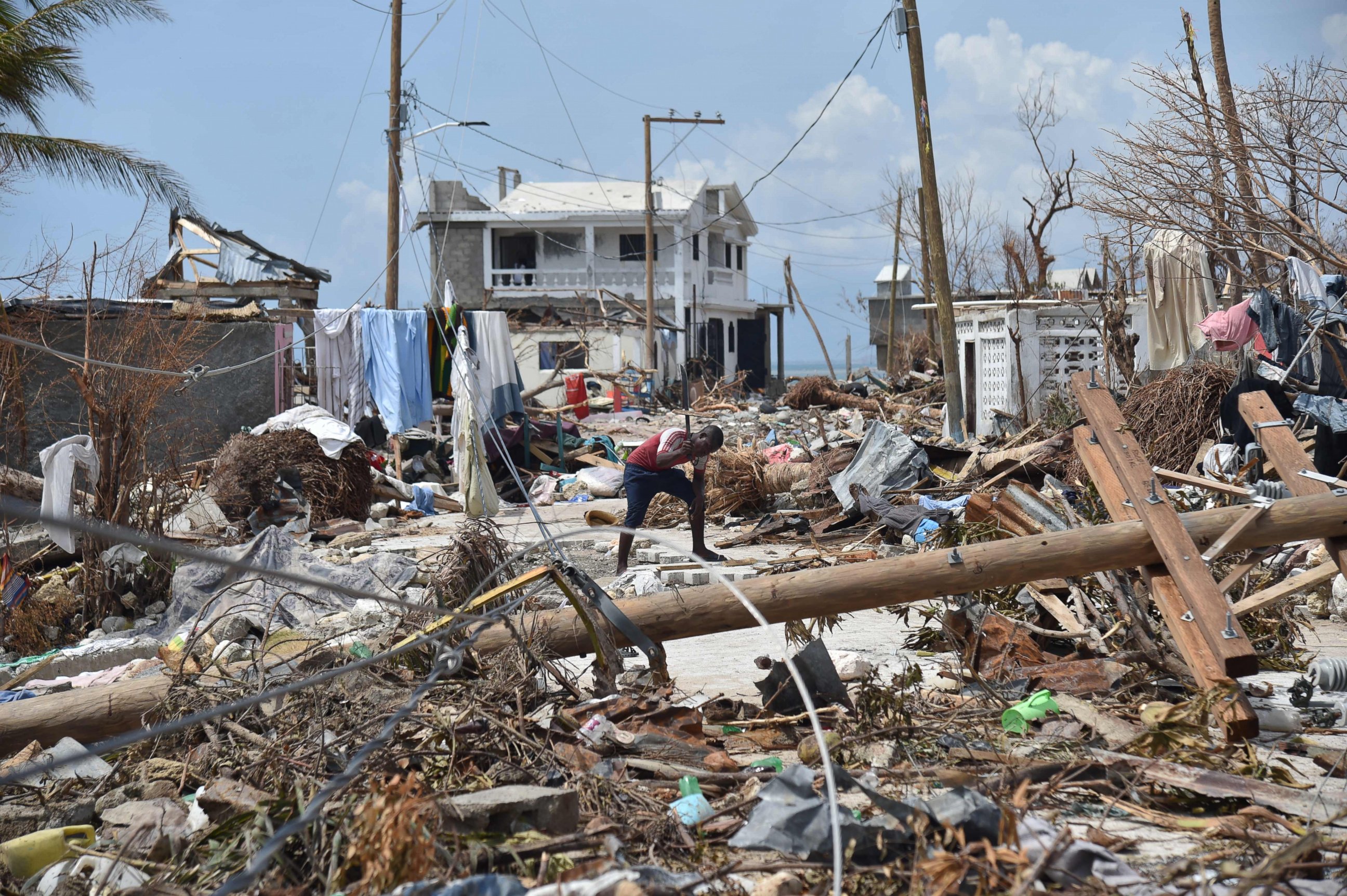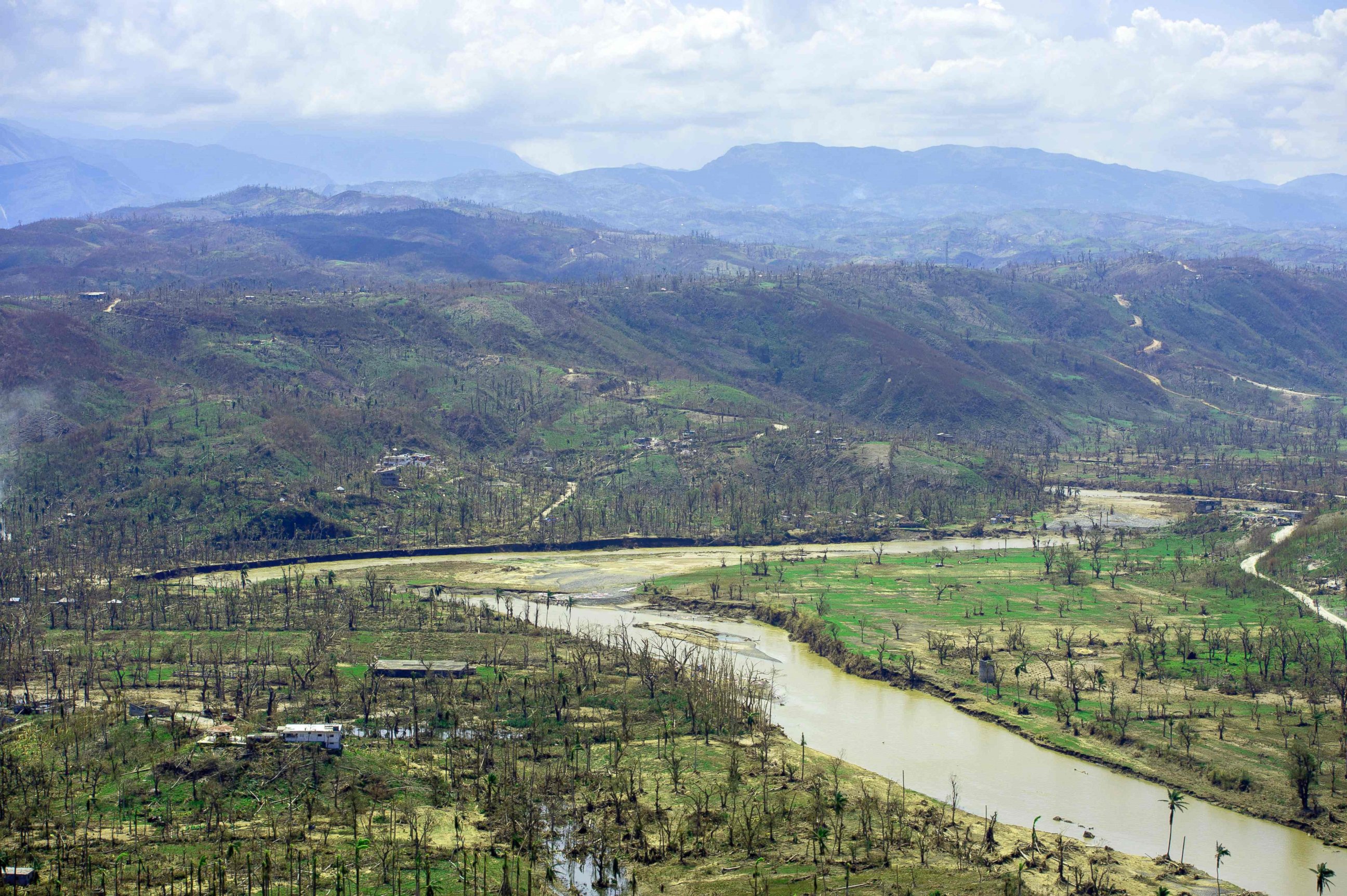Famine Fears Rise in Haiti After Devastating Hurricane
In some areas 100 percent of the crops have been destroyed, aid groups say.
— -- A week after Hurricane Matthew tore through Haiti, leaving a trail of devastation across the nation, the country's interim President Jocelerme Privert fears further catastrophe for his country.
He told the BBC, an ABC News partner, that Hurricane Matthew has caused "apocalyptic" damage to the country.
Privert said that food, water and medicine were immediately needed. He worried about long-term devastation as a result of flooding, saying that three or four months from now, when the food supplies stop coming in, the country is going to face a "real famine."

Alexis Masciarelli, a spokesman for the United Nations' World Food Program in Haiti, told ABC News today that he has been on the ground in the country distributing food with the program since Saturday.
"People are still in shock. Food is going to be an issue," he said, adding that in one southern peninsula city he visited, Jeremie, "100 percent of the crops have been washed out. There is nothing left."
"Most of what they are eating is what they are finding on the ground, what has fallen from the trees after the hurricane. They have lost their crops," he said.

"I flew there by helicopter, and it is quite striking. You see so many houses without roofs. Trees have fallen everywhere. When you reach the ground, it is really dramatic. You can still feel the shock of the people, of what they went through," Masciarelli added.
He said that in terms of food in the region, "they are completely dependent on assistance from their friends and family and whatever assistance we can provide."
The WFP has distributed 500 tons of food to the affected areas and estimated that it has enough food for 300,000 people for one month. It added that by the end of the week, it will have a clearer idea of how many people will need food and for how long. Communications and access to rural areas remain difficult, Masciarelli said.
In addition to the crops being wiped out, he said, he couldn't see a single fishing boat left when he flew into the area.
"What is very clear is that local production is going to be affected. People are going to be dependent for a while on foreign aid," he said. He added, however, that at the moment he is not worried about a famine.
The official death toll from Hurricane Matthew in Haiti stands at 336, but many reports put that figure much higher, as communication with some of the worst-hit areas remains extremely difficult.
U.N. Secretary General Ban Ki-moon appealed for $120 million in aid yesterday to help the people of Haiti in the aftermath of the hurricane, saying "a massive response is required."
"Some towns and villages have been almost wiped off the map," he told reporters yesterday. "Crops and food reserves have been destroyed."
The U.N. said that 1.4 million people in Haiti need assistance, and women and children are among the most vulnerable.

Holly Frew, an aid worker with the humanitarian group CARE who is on the ground in Haiti, said that she couldn't comment on whether there will be a famine but that she has seen the extent of crop destruction by the hurricane.
"When I was in the southeast, in Jacmel, 95 percent of the crops were destroyed. Everyone had lost all of their crops and all of their livestock," she told ABC News today.
"This area was also suffering from a drought before the hurricane hit," Frew added.
She went on to say that as the storm-ravaged nation begins to rebuild, much more humanitarian aid is still needed.
In addition, the region hit hardest by Hurricane Matthew is often referred to as the breadbasket of the country.





